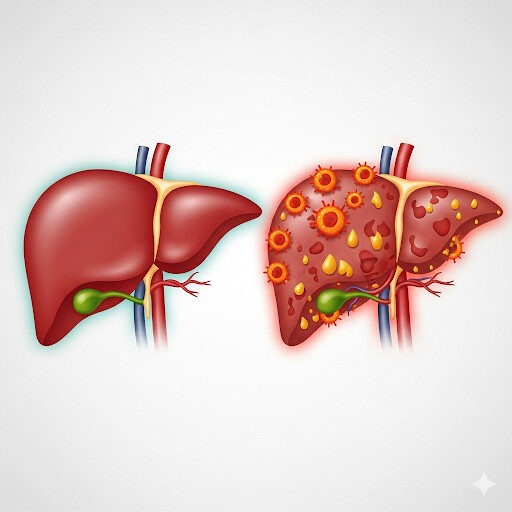
Should I Be On Weight Loss Medication?

Prescription weight loss medications (which used to be called appetite suppressants, and now are also called anti-obesity medications) can help people lose weight, and more importantly, keep the weight off. The medications we use today are approved by the FDA for people with a BMI over 27 with other weight-related health problems, or over 30 even in the absence of other health problems, as an adjunct to a properly structured weight loss program.
What do Weight Loss Medications Do?
Recent studies have shown that weight loss medications can double to triple the amount of weight lost when people are engaged in a structured weight management program (like those offered at Clinical Nutrition Center). The newer medications are approved for long-term use in adults. The older medications were labeled 60 years ago for short term use; however, modern practice is to use these medications long-term as well for properly selected individuals, consistent with guidelines published by many organizations ranging from the Endocrine Society to the Obesity Medicine Association.
How do weight loss medications work?
The older medications (phenterine, diethylproprion / Tenuate) help to reduce appetite, and some evidence supports that they may help with metabolism. There are several new medications with various mechanisms. One reduces hunger and cravings (buproprion ER / naltrexone marketed as Contrave). Another is a reformulation of our older medications (phentermine / topiramate ER marketed as Qsymia). And a third is an analogue of a gut hormone that is released from the small intestine as a response to eating, signaling the brain and the gut that meal time is over (liraglutide, marketed as Saxenda).
The medications we use today are safe, effective, and affordable. Studies have shown improvements in weight-related health problems ranging from type 2 diabetes to sleep apnea.
In spite of this, most people struggling with obesity are never offered medical treatment. In fact, one recent study showed that in 14 Million individuals in one health plan, only 1.4% received weight loss medication. This stands in stark contrast to medication use in other chronic diseases, like type 2 diabetes, where it is estimated ~85% of people are on medication.
Why do people regain lost weight?
We have learned that the body has significant metabolic adaptations to weight loss that make keeping weight off difficult. It slows the metabolism, increases hunger and decreases satiety. This is thought to be the mechanism leading to weight regain after people work so hard to lose weight.
Many people we see at Clinical Nutrition Center have attempted numerous other weight loss programs before coming to us – many report having tried 12 to 14 other programs! Yet when asked about weight loss medications, in spite of their difficulties sustaining weight loss, they have never worked with a physician trained in obesity medicine. Consequently, they were never offered weight loss medication.
Similarly, among the much heavier patients, most who undergo bariatric surgery were never offered weight loss medication first. Would you request a total knee replacement before trying more conservative treatments such as physical therapy, medication or injection? A recent study shows that weight loss medications are extremely effective at improving weight loss, even for those who have had weight loss surgery.
Also, many patients we have worked with at Clinical Nutrition Center stop treatment after losing weight. They frequently come back to the clinic a year or two later having regained all of the lost weight. Often, they blame themselves for the weight regain – but don’t appreciate that stopping treatment (including medication) resulted in the weight returning to baseline. Nobody is surprised if they stop a blood pressure medication and the blood pressure reads high again. The same is true with weight loss medications. To be effective, they have to be continued. Which leads us to the next point…
Should I be on Weight Loss Medication?
So, let’s get back to the original question. Should you be on a weight loss medication? In my opinion, if you have an elevated health risk from your weight, and the benefits of weight loss medication outweigh the risks of weight loss medication, then the answer is “Yes.” If you have tried to lose weight before and had trouble losing weight, or you have had trouble keeping the weight off, then then answer is also “Yes.” Further, if the answers to the above questions are “Yes,” we should also consider long-term use. These questions need to be discussed with a properly trained health care provider, and properly monitored according to the latest clinical guidelines.
If you are interested in learning more about all of the different weight loss medications, and whether you might be a good candidate, schedule a visit with Dr. Lazarus or Heather Thomas, PA-C to learn about your options.





Hi! I miss CNC very much and have had constant weight issues since I moved to Nebraska. I went to WW, but you eat so much food, my stomach has been stretched, I feel. I will be coming to Denver in September, and was wondering if it would be possible to meet with Heather and get a prescription to get some tenuate, to help me to lose some weight. Please let me know. Thanks.
Hi Sharon – we would love to see you when you are in town! Can you give us a call at (303) 750-9454 and we will gladly get you scheduled? Look forward to seeing you next month…
What happens when you don’t tolerate certain meds and those that you do tolerate seem to stop working as well after time, like you kind of burn out on these? What is your approach to that? I will be seeing you again soon, as this Covid thing has kept me away too long, I am noticing now that I am not doing as well! Thanks for all you do! Kim
The idea that weight loss medications stop working is out of date. Current thinking is that weight loss causes a drop in metabolism and an increase in hunger / decrease in satiety. These changes are HORMONAL. Stopping a treatment that is working will result in regaining the lost weight the majority of the time, similar to how if we stop a blood pressure medication the blood pressure goes back up, or if we stop a cholesterol medication the cholesterol goes back up. You and I can discuss continuing treatment long term, different medications, and other strategies that can be helpful. Further, this has been an extraordinarily stressful period for most people I know – sustaining a healthy weight in times of inordinate stress is extremely difficult! Finally, if you haven’t already, I’d love to have you join our private facebook group – just visit https://www.facebook.com/groups/clinicalnutritioncenter See you soon 🙂